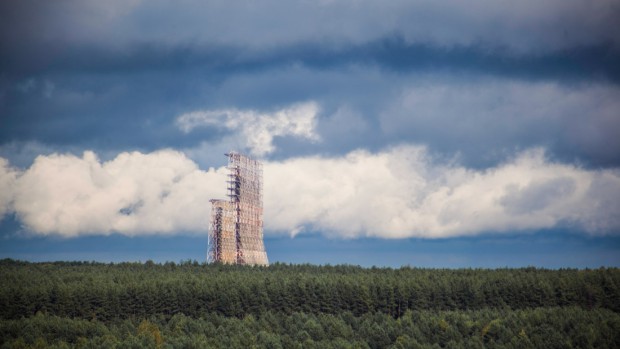Odessa, the pearl of the Black Sea, is one of the most charming port cities you can imagine, the centre of the city mainly 19th-century Italian and French architecture. Like a run-down Riviera, but with the exchange rate gone from 8 grivnas to the pound to 34, it’s fabulously cheap for visitors. At my favourite Azeri restaurant, which doesn’t sell wine, they offered to go to the supermarket and buy me a bottle of red. £1.50 for perfectly drinkable Ukrainian plonk. The rate has dived due to the unrest and war in the East of course. On the surface things are somewhat calmer than last year when a fire killed dozens in a trade union building.
There’s enough instability and sporadic bombing, however, to keep people on their toes. The one evening I managed an early night I was woken up by the sound of a bomb going off outside Libertine, a gay club. No-one knows who set the bomb off – the most common view was that it was most likely pro-Russian separatists fomenting unrest. But the reality is no-one is sure – when a cinema was set fire to in Kiev, the consensus was it was a real-estate scam.
I was there for the Odessa Film Festival. In the circumstances it was miraculous that it came off at all, thanks to donations in kind and an army of volunteers. The cash-strapped state has pulled the plug on at least eight feature films. The quip was that the ‘work in progress’ section should really be called ‘work not in progress’. They haven’t got money for many celebrities, which I rather liked as the whole thing felt rather democratic.
There were naturally plenty of local directors, notably Myroslav Slaboshpytskiy who said he had a soft spot for Odessa as it was where he had his first encounter with a hooker under Soviet times. He had a considerable hit in the last year with his feature The Tribe, which had no dialogue, only sign-language, as it was set in an institution for the deaf. It’s one of the best representations of Ukrainian filmmaking at its radical, adventurous best.
His new film is based on his experiences as a crime journalist in Chernobyl, and called Luxembourg because the principality is the same size as the nuclear exclusion zone. The protagonist is a policeman, and the film sounds like it’ll be a very odd mix of hard-boiled noir and Tarkovsky, whose classic Stalker was also set in an otherworldly zone.
Chernobyl also raised its ugly head in Chad Gracia’s controversial documentary The Russian Woodpecker which features an eccentric tousled-haired artist called Fedor Alexandrovich who is convinced Soviet officials deliberately blew up the power station to cover-up a Chernobyl radar system that went wrong. The impressive and mysterious steel radar edifice Duga-3 still exists and is spectacularly filmed, by drone. The title refers to the repetitive mysterious electronic tapping that appeared on shortwave radio stations in the cold war and that originated in the area, which some said was an experiment in mind control. There are interviews with Soviet bureaucrats and investigators, who all admit that documents have never been released and the full truth of the disaster has yet to be revealed.
Like many conspiracy theories Fedor’s is unlikely but just about conceivable. The film works more than anything as a portrait of a paranoid artist personally damaged by the disaster and also as a meditation on who these days is telling the truth about anything. Foreigners in general loved it, while all the Ukrainians tended to hate it calling it a ‘mockumentary’, ‘science fiction’ or plain ‘irresponsible’.
A reason for that may be that, for Ukrainians, it’s Russia’s powerful and highly resourced propaganda machine that is coming up with the most mendacious stories about how the revolution last year was Fascist, how the Russian soldiers in the East are ‘volunteers’ or perhaps on holiday, and how the Malaysian airliner shot down a year ago was filled with dead bodies.
Trying to find out what is really happening in Ukraine, however, is tricky. Who were the snipers who killed a hundred protestors at the Maidan last year? In Odessa, a different taxi driver will tell you a different story, depending on which media they’ve been listening to. That’s one reason why the shorts and more sober documentaries – the majority of them about Maidan and the war in the East – were so popular, with huge queues to get in. Among the rumours, conspiracies and plain lies, the truth is hard to come by in these parts and people feel local filmmakers were more likely to be telling it.
Peter Culshaw is the author of Clandestino: In search of Manu Chao (Serpent’s Tail)






Comments